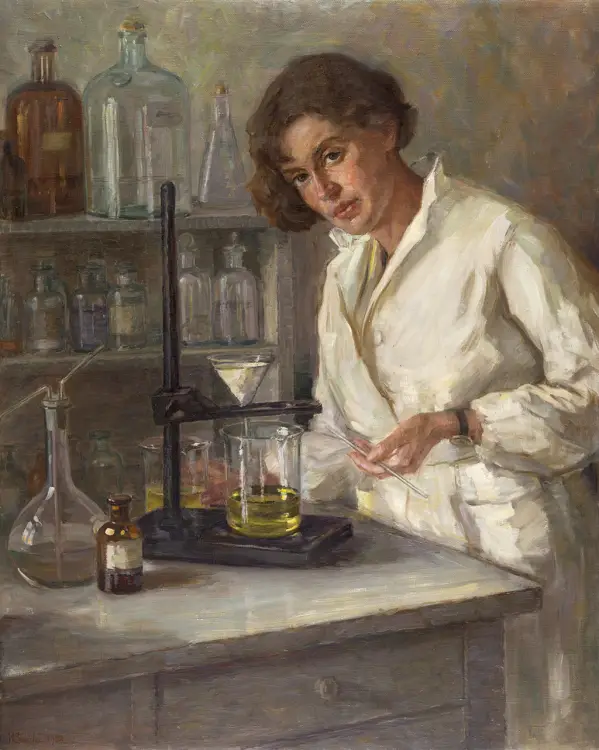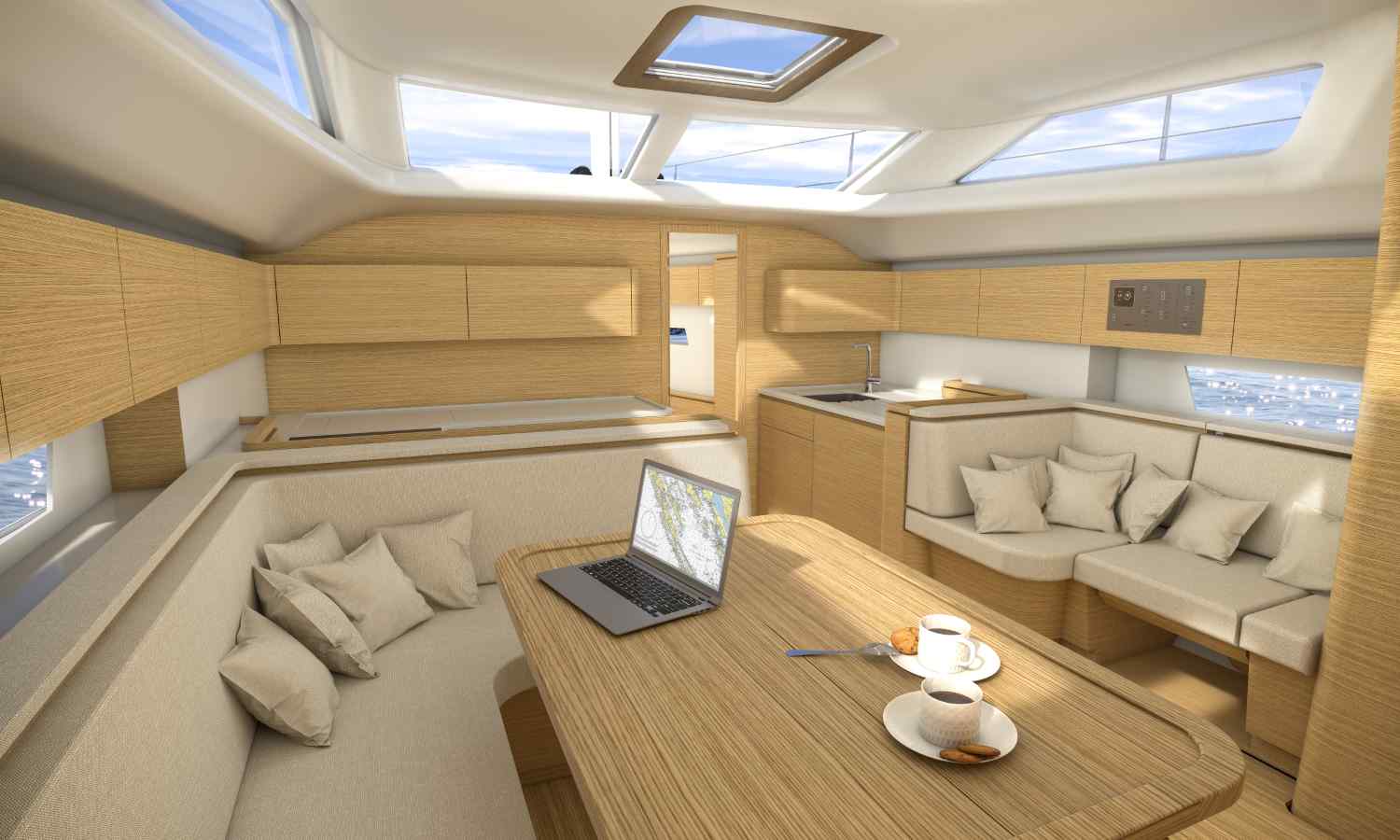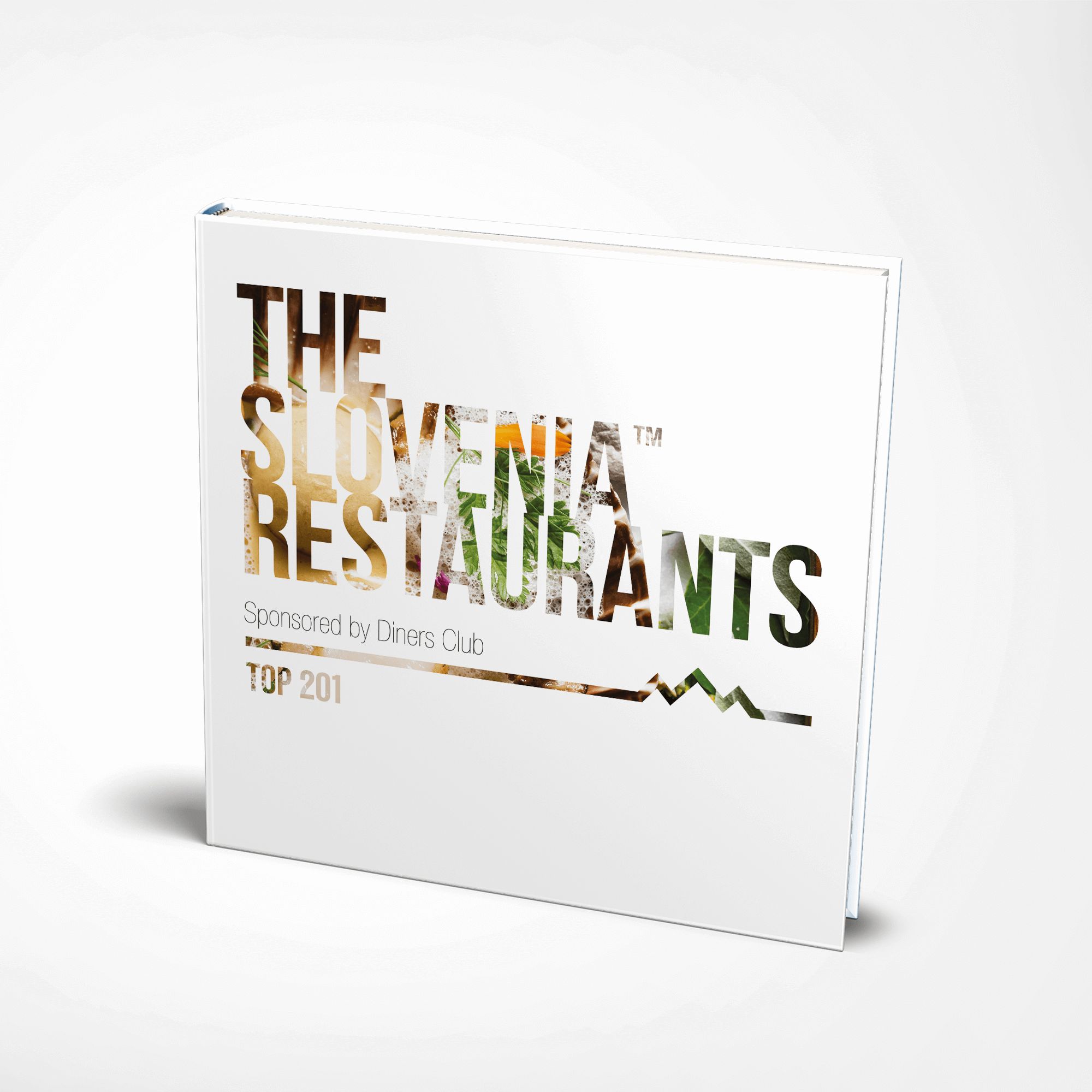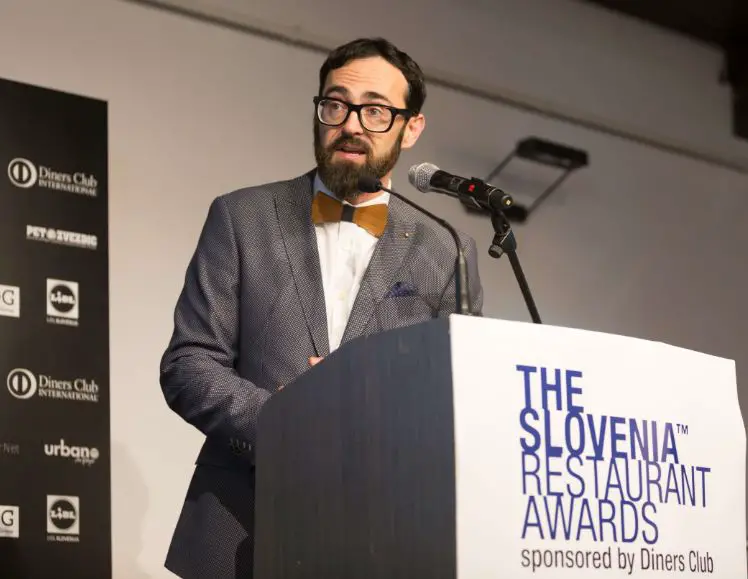Made in Slovenia
STA, 15 July 2020 - One hundred years to the day the first ever doctorate was awarded at a Slovenian university. Ana Mayer received a doctorate in chemistry after completing at the newly-established University of Ljubljana her chemistry studies which she started in Vienna before the collapse of Austria-Hungary.
Mayer, born in 1895 in Lože near Vipava, south-western Slovenia, started studying chemistry and physics at the Vienna university in 1914.
She was forced to leave in 1918 when the university decided after the end of WWI that all Slavic students must leave it, according to the kvarkadabra.net website.
Mayer continued her studies after Ljubljana got the first university in 1919, earning the doctorate on 15 July 1920 as the first student and the first women.
Even before her doctorate, she started working at the university as an assistant at the Chemistry Institute, as the first woman to teach at the university.
Although she wanted to continue the academic career, she quit in 1922 for what could be a lack of funding at the institute, her marriage to Evgen Kansky, a professor of medicine, or because she was pregnant.
She thus went into business, setting up a company which became synonymous with quality chemical substances and pursued a successful business career.
She also established a factory of diethyl ether and solvents for varnishes in Podgrad near Ljubljana, laying the foundations for the chemical and pharmaceutical industries in Slovenia. The factory was first seized by the Nazis and then nationalised by the communist authorities in 1948.
Ana Mayer-Kansky had three children and died in 1962, whereas her husband, who was forced to retire in the autumn of 1945, died 15 years after her.

A painting of Ana Mayer-Kansky by Henrika Šantel,1932. Source: Wikipedia, publc domain
According to Slovenia's Statistics Office (SURS), almost 11,600 students have earned their doctorates in Slovenia since the country became independent in 1991.
There were over 3,300 doctoral students in the 2019/2020 academic year and in 2019 there were almost 13,200 persons with a PhD in Slovenia - a mere 0.6% of the population.
There was at least one person with a PhD in all but five Slovenian municipalities, while 18 municipalities had more than 100.
Ljubljana as the largest city and home to the oldest and largest Slovenian university had more than 5,530 doctors of science, which was 42% of all doctors in Slovenia.
The number of residents with a PhD in Slovenia is increasing, having risen by 585 a year over the past five years, according to SURS.
STA, 22 June 2020 - Elan has launched a new sailboat, dubbed GT6, in what the company claims is the most technologically advanced and best vessel it has ever produced. Like many other companies, Elan is facing the consequences of the coronavirus pandemic, but the number of clients has been increasing in the last month.
What is also one of the largest vessels ever produced by the company based in Begunje na Gorenjskem, GT6 is part of the GT series, which was introduced at the end of 2017 with the GT5 model.
Marko Škrbin, the director of Elan's nautical division, has recently told the STA that GT5 was in fact the last model presented before GT6, as the company focused in 2018 and 2019 on thoroughly refurbishing the Impression and E product lines.
GT is the most prestigious line, which uses the best technology, work processes and materials available, and concept-wise, it follows the grand tourer concept in the automotive industry, hence the name.
"It represents an ideal balance between a fast sailboat and comfort at the highest level for long trips," Škrbin said, adding that the new sailboat was also a product of cooperation with the renown Humphreys Yacht Design studio.
Elan has also signed a cooperation deal with Studio F. A. Porsche for interior and exterior design of its sailboats.

The company annually produces around 80 vessels and last year was the most successful in the last ten years business-wise, but Škrbin notes that the pandemic has left an impact and that 2020 will be an underachieving year.
"But in the last month, we have seen the return of a majority of private clients who had postponed their decisions to buy because of the situation, and some new ones," he said, adding that buying a boat was not an impulsive decision.
The company has noticed that people are going outdoors again while looking to minimise their carbon footprint. "This is practically the essence of sailing and the hope is that even more people will use sailboats," Škrbin concluded.
STA, 22 June 2020 - The 2020 Plečnik Prize for best architectural project in Slovenia was won by Matija Bevk, Vasa J. Perović and Christophe Riss for the Muslim religious and cultural centre in Ljubljana. The jury said the project was exceptional not only in the national but also in the European context.
The architects have proven how extremely important it is to have a comprehensive approach to a project, and consistently implement the concept both at the levels of the city and building, and individual architectural elements.
With the religious and cultural centre, Ljubljana has finally gotten another piece of top quality public architecture of sensible size after a few decades, the jury said.
The project by Bevk Perović Arhitekti is an example of how top architecture can be created with a determined approach based on winning an international architectural design competition.
It also shows that architectural design competitions are an excellent tool for making sure that the high standards in Ljubljana's architecture set by Jože Plečnik and visionary decision-makers continue.
The Plečnik medal for realisation went to Rok Žnidaršič and Žiga Ravnikar for the gym of the Vižmarje Brod Primary School, which the jury described as a "convincing and fresh solution exceeding ordinary standards in every aspect".
Tomaž Vuga received the Plečnik medal for important contribution to architectural theory for his book Projekt: Nova Gorica, intertwining his personal recollections of his home town with his professional work as one of the main urbanists of Nova Gorica. His research offers a unique insight into the construction and planning of Nova Gorica in the second half of the 20th century, the jury said.
Another medal went to Matevž Vidmar Čelik, the director of the Museum of Architecture and Design, for his contribution to architectural culture and for the promotion of the museum in the international architectural community.
As the museum head, Vidmar Čelik has set out a modern path for the institution over the last ten years. By participating in international projects and cooperating with international institutions, the museum has been promoting Slovenian architecture on a global level.
The Plečnik Prize, the highest recognition for achievements in architecture, landscape architecture, urbanism and interior design in Slovenia, has been conferred by the Jože Plečnik Fund, named after the famed architect Plečnik (1872-1957), since 1972.
In the July edition of the influential Decanter wine magazine, which is dedicated to the world's best orange wines, the Slovenian Dolium Muscat Ottonel of Zorjan shares the first place with the Austrian Graue Freyheit of Heinrich. Both wines were ascribed 95 points by Simon J. Woolf who composed a list of 30 best orange wines in the world. Third place also went to Slovenia, with Rebula selekcija of Blažič, which Woolf awarded 94 points.
Zorjan’s Dolium Muscat Otonel from Podravje in Štajerska region is a 2016 vintage that was macerated for one year in amphorae and then another year in barrels, from where it went into bottles without filtration.
Orange wine is made of white grapes, produced as if it were red, and thus with a prolonged maceration process in which tannins from grape skins and stems dissolve into the wine’s stronger body. Rosé, on the other hand, is a red grape wine, produced as if it were white, with the removal of skins and stems from the wine making process.
Most of the Slovenia’s pioneers in co-natural wine production – which refuses regulation of chemical processes of wine through chemical additives – originate from around the border of Goriška brda (Collia), Vipava Valley and the Karst area, and are widely seen as among the best in the world of their kind. To name a few, Gravner, Radikon, Prinčič, Terpin, Mlečnik, Renčel, and Zidarich are all established names to look out for. More recent names from all of the country’s winegrowing regions have also joined this creative circle, including Urbajs, Klinec, Štekar. Nando, Keltis, Šuman, Gordia, Reia, Škerk, Škerlj, UOU, Kabai and Movia.
Although large supplies of such wines cannot be produced in Slovenia, they are present all over the world, from Japan to the USA and Paris. In Ljubljana, you can find many fine bottles from the above listed producers in Štorija, a specialised wine store on Trubarjeva Street.
STA, 21 June 2020 - The Cankar Prize, a new literature award, was won by Sebastijan Pregelj for V Elvisovi Sobi (In Elvis's Room), a novel about a generation which was growing up while the former Yugoslavia was slowly disintegrating. He received the EUR 5,000 prize on Sunday in Vrhnika, the birthplace of author Ivan Cankar, after whom the award is named.
The novel is pervaded with the memory of recent historical changes, telling a coming-of-age story against the backdrop of a broader social context from the end of the 1970s until Slovenia's independence.
The jury, chaired by Ivan Verč, said it captures very well the feelings of the generation which witnessed the collapse of Yugoslavia, the war and transition in their childhood.
In his short acceptance speech, Pregelj, who was born in 1970, said "the novel tells a story about my generation, which was growing up with some watershed events".
He believes the time has come to look back and write those stories to tell them to new generations, to introduce them to the times "which were a bit more exciting".
The novel is also about people who found themselves on the wrong side through no fault of their own and about others who found themselves on the right side without any merit, the writer said.
The prize for the most original piece of literature from the previous year - either fiction, play, essay or poetry - was established last year by Slovenian PEN, the Slovenian Academy of Sciences and Arts (SAZU), the SAZU's Science and Research Centre, and the University of Ljubljana to honour Cankar (1876-1918) and encourage top-quality literature.
The award, for which the prize money was donated by the Vrhnika municipality, was given out at a ceremony in Cankarjev Laz, a piece of land that used to belong to Cankar's poor family.
Pregelj won it against another three shortlisted authors - Vinko Möderndorfer, who was in the running with his collection of essays Misanthrope at the Marketplace, Simona Semenič with her erotic play This Apple, Golden, and Brane Senegačnik with Conversations with Nobody, a collection of poems.
The novel is not yet available in English, but while you're waiting you can read Pregelj’s earlier Chronicle of Forgetting
STA, 16 June 2020 - Chef Ana Roš of Hiša Franko was awarded two stars as Michelin presented its first ever rating for Slovenia on Tuesday. Five other restaurants got a star each: Vila Podvin (Uroš Štefelin, Mošnje), Hiša Denk (Gregor Vračko, Zgornja Kungota), Atelje (Jorg Zupan, Ljubljana), Pri Lojzetu (Tomaž Kavčič, Vipava) and Dam (Uroš Fakuč, Nova Gorica).
Roš, a self-taught cook who took over the restaurant from her parents-in-law, became the first chef with two Michelin stars in the region.
"Michelin has arrived in Slovenia at a key moment, just at the right time," she told the press. "It's not easy for tourism and the restaurant business right now. We have not laid off people and don't want to. We need each and every guest willing to get in the car and drive to Kobarid," she said.
She believes the rating proves that Slovenia is an excellent culinary destination. "Six restaurants received their stars in the first rating ... Moreover, I know that there are many candidates shortlisted for the stars and there will be great surprises coming up next year."
Roš has been celebrated for years, having been named the World's Best Female Chef by the World's 50 Best Restaurants culinary portal in 2017 and a year later made the Best Chef Awards list of 300 top chefs in the world alongside Kavčič.
She became even more widely know outside Slovenia after being featured in the Chef's Table series streamed on Netflix.
Michelin also launched its first guide to Slovenian restaurants at the ratings presentation that took place via videolink today.
A total of 52 restaurants have been awarded, however Gwendal Poullennec, Michelin Guides international director would not say how many had been reviewed in total.
He did say, however, that many, above all the starred ones, had been tested several times to make sure the experience was consistent. He also said that Michelin inspectors were excited over Slovenia's versatility and potential.
The Bib Gourmand designation for exceptionally good food at modest prices went to nine restaurants: Etna of Igor Peresson in Divača, Ruj of Peter Patajac near Divača, Gostišče Grič of Luka Košir near Horjul, Jožef of Sadmir Talić in Idrija, Na Gradu of Damjan Fink in Ljubljana, Rajh of Leon Pintarič near Murska Sobota, Mahorčič of Ksenija Krajšek Mahorčič near Kozina, Gostilna Repovž of Meta Repovž near Sevnica and Evergreen of Mojmir Marko Šiftar in Smlednik.
Six restaurants were noted for sustainability: Gostišče Grič, Monstera Bistro with chef Bine Volčič in Ljubljana, Hiša Franko, Gostilna za Gradom with chef Davide Crisci in Koper, Gostilna Krištof of chef Uroš Gorjanc near Brdo pri Kranju, and Mahorčič.
The Plate Michelin, a designation for fresh ingredients and carefully prepared meals, went to as many as 37 restaurants.
A new app, Giro, has been launched which allows car owners to rent out their otherwise unused vehicles to those who might need them on a daily basis. The car-sharing system works in a similar fashion as Airbnb.
Users can check for available cars on a map, which reveals that the app has taken off in Ljubljana but not yet also in other parts of Slovenia. Nevertheless, the range of available cars seems to be quite impressive, from a Porsche 911 (2018) available from €600 per day and to a Renault Twingo (2003) which you can get for just €10.

Cars also seem to be rented with a daily limit of kilometres driven. In the aforementioned cases, the Porsche comes with 100 kilometres included in the price, and every additional kilometre costs €2.5, while every kilometre over the 170 km allowance will cost you €0.2 in the Renault.
It’s been a long while since most of us saw a menu, but with the lockdown eased and places opening up it’ll soon be time to go somewhere that provides food beyond your abilities to cook. To that end it’s a pleasure to once again announce The Slovenia Restaurant Awards, which highlight the best of dining out in the country, presenting the names to watch and tables call ahead for, with reservations often essential, and always recommended.
If you to read a version of this story in German, with more details and other pictures, then check out the always informative Mein Slowenien
This year was the fourth edition, with the system now a well-oiled machine that ensures fairness and balance. With an initial list of 123 nominees chosen by the Gastronomic Academy (composed of chefs and restaurant owners, gastronomic associations, the media and foodies), the competition is then opened to the public, with a vote using a secure system to deter multiple votes. Just like the voters in the Gastronomy Academy, members of the public can choose five restaurants in their own region, and with a further five votes to then assign to the other three regions, with the full list of nominees shown here.
This year there were 6,520 votes from members of the Gastronomic Academy, and 27,630 from the public, giving a total of 34,150, with the auditors Deloitte overseeing the process
Niko Slavnič, founder and host of the awards
Of course, covid-19 meant some changes were needed to the actual event, which moved online and was shared via Zoom, featuring a discussion hoisted by Niko Slavnič, founder of the awards, and representatives of three winners in the national category – Ana Roš & Valter Kramar (Hiša Franko), Uroš Štefelin (Vila Podvin) and Tomaž Kavčič (Dvorec Zemono - Gostilna pri Lojzetu) – where The topic of conversation was the current situation in the hospitality industry and the importance of adapting and innovating in order to not just survive, but thrive.

There's also a book, which you can buy here
What are the best restaurants in Slovenia 2020
Hiša Franko was named the best restaurant in the Alpine Slovenia region, while for Mediterranean & Karst Slovenia the title went to Gostilna pri Lojzetu - Dvorec Zemono. In the Thermal Pannonian Slovenia region Hiša Denk was chosen as the best, and in Ljubljana and central Slovenia the winner was JB Restaurant.
Gostilna pri Lojzetu - Zemono Manor won the best inn, City Terasa was chosen as the best hotel restaurant, and the Stari Pisker Inn and Pub received the title of the best culinary newcomer in the votes from the public. This year, for the first time, the award for the best tourist farm was given, the title of which was given to Domačija Majerija.
As noted above the end, the three best restaurants in Slovenia were Gostilna pri Lojzetu - Dvorec Zemono, Hiša Franko and Vila Podvin, with the awards given by Belmond, and including a bottle of the company of them received the Diplomatico Single Vintage Rum 2005.
More details on The Slovenia Restaurant Awards 2020 can be found here.
STA, 28 May 2020 - The Hoče-based company Sloluks has developed an innovative device for disinfecting spaces such as schools, kindergartens, companies, bars and restaurants, hotels and homes. The device uses the same ultraviolet technology that is used for disinfecting hospitals and labs, but it is described as much more user friendly.
Ultraviolet light, specifically UV-C radiation, has been used to remove bacteria, moulds and viruses in hospitals and labs for years, and in recent months it has been used to clean buses in Hong Kong, and passenger aircraft.
Using this technology, Sloluks has developed a portable, easy-to-use, safe and cost-efficient device that is suitable for broad use.
The device, which can clean a school classroom of 99.9% of impurities in a matter of minutes, according to Sloluks CEO Martin Vovk, does not produce the potentially hazardous ozone like some similar devices that are sold online.
It also automatically shuts down if it detects living organisms in the room.
The Slovenian-developed and -produced device starts at under EUR 10,000.
The device will be tested at the Selnica ob Dravi primary school in eastern Slovenia. Mayor Vlasta Krmelj said the municipality was aware of the importance of testing for innovation and improving of products that bring long-term benefits to communities.
The school hopes the device will enable it to use less chemicals for cleaning, thus creating a healthier environment for children while also cutting costs.
You can learn more about the company here
STA, 23 May 2020 - Instatext, the company behind the eponymous web platform for text improvement based on artificial intelligence, is the winner of this year's Startup of the Year Award conferred by the Slovenian Startup Ecosystem project on Friday.
Instatext is a web platform which uses artificial intelligence to create instant recommendations and ideas about how to improve a text content-wise and make it more readable and understandable.
The platform is able to restructure an entire sentence and put it in the context. "In three months since the team put the solution on the market alone, employees in academic circles have been sold more than EUR 30,000 in licences," the organisers said.
The platform has more than 3,000 users, and the Instatext comprises top experts in artificial intelligence, language technologies, natural language processing and software development, they added.
Related: Slovenian Gin Named Best in Europe
The award jury took into account for criteria - successful confirmation on the market; attracting investments from Slovenian and foreign investors; competences, commitment, experience and organisation of the team; and potential for fast growth on foreign markets.
The award is conferred by the Slovenian Startup Ecosystem project and the main organiser is Start:up Slovenija. It is co-funded by the Slovenian Enterprise Fund, the Economy Ministry and the European Regional Development Fund.
You can try Intertext here
STA, 20 May 2020 - The National Institute of Chemistry has started testing a potential coronavirus vaccine in a mouse study after receiving a green light for the animal trial on Tuesday. The nanoparticle-based vaccine contains viral antigens and could be more effective than a protein-based vaccine, Roman Jerala of the institute told the STA.
The first results of the study are expected in July when it will be clear whether the mice have responded to the vaccine by creating neutralising antibodies that prevent the coronavirus infection.
Jerala, a biochemist and synthetic biologist, is the head of the synthetic biology and immunology department at the institute where a new vaccine platform is currently tested. The project will enable a swifter, easier and cheaper way of preparing the vaccine.
The Food Safety, Veterinary Sector and Plant Protection Administration gave a go-ahead for the trial on Tuesday, almost two months after the institute submitted a request for the mouse study.
The testing commenced in a laboratory environment designed for in-vivo studies immediately after the green light was given.
Multiple constructs of protein nanoparticles and virus-like particles have been prepared to be analysed using cryo-electron microscopes.
"Given that findings about the virus and the [Covid-19] disease are developing extremely quickly, the institute prepared a somewhat amended type of vaccine during these two months, hoping to get a better cell immunity and more long-lasting protection," said Jerala.
He also announced that the institute would submit another request this week to complete trials on animals.
In each group the scientists will use six mice, constantly monitoring and testing various combinations. Altogether, the study will thus require tens of mice.
"The procedure will include the initial immunisation with booster doses in a few weeks and the analysis of serum and cell response," Jerala said.
The institute has recently developed a test for determining the prevention of the fusion of the virus and human cells, a way to test the vaccine efficacy as well as antibodies in persons who have recovered from Covid-19 or will have been vaccinated, according to Jerala.
The researchers will also focus on assessing whether the nanoparticle-based vaccine is more effective than a protein-based solution that is used as a basis for most coronavirus vaccine trials at the moment.
The project could deliver an innovative strategy to fight Covid-19 or potential types of diseases that might stem from similar viruses in the future.
If the animal studies prove effective, the institute will have to find partners who could conduct clinical trials.
The project is worth some EUR 500,000 with most researchers at Jerala's department working on it.





